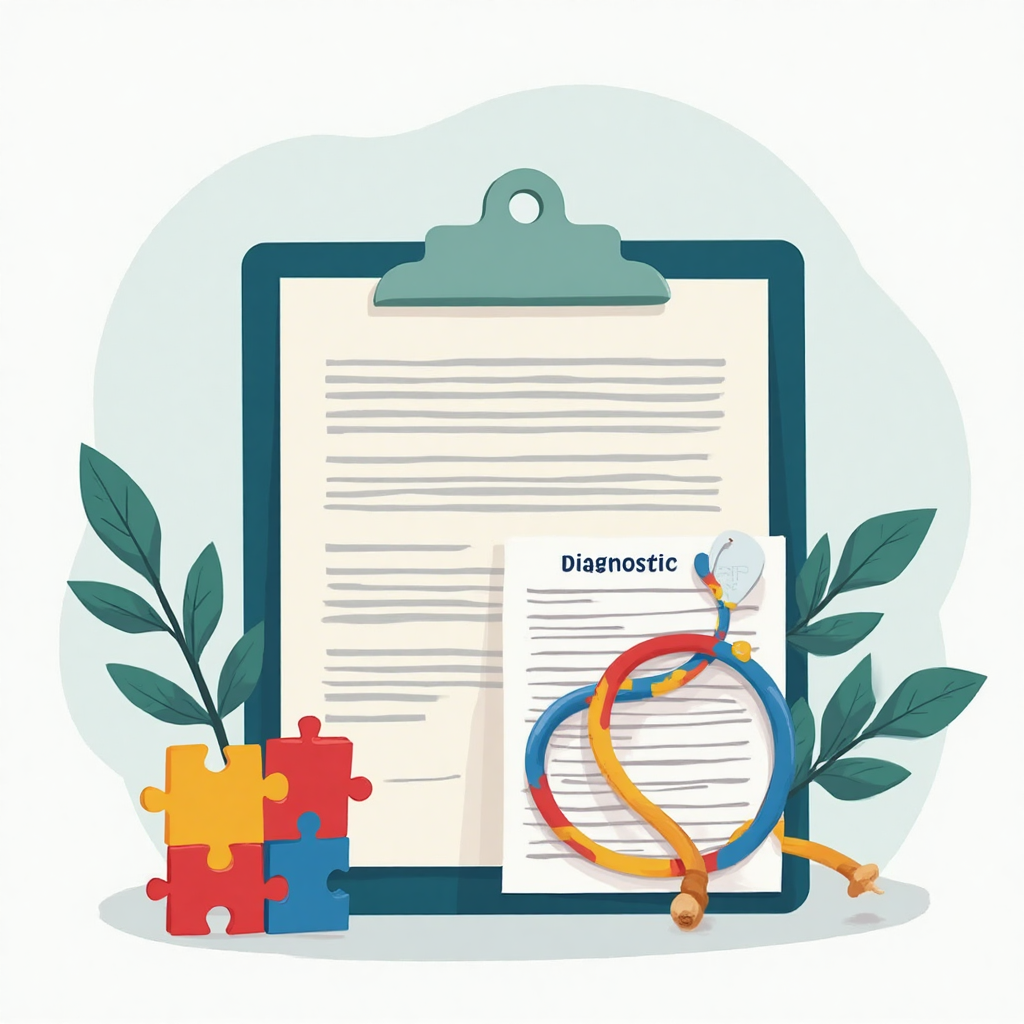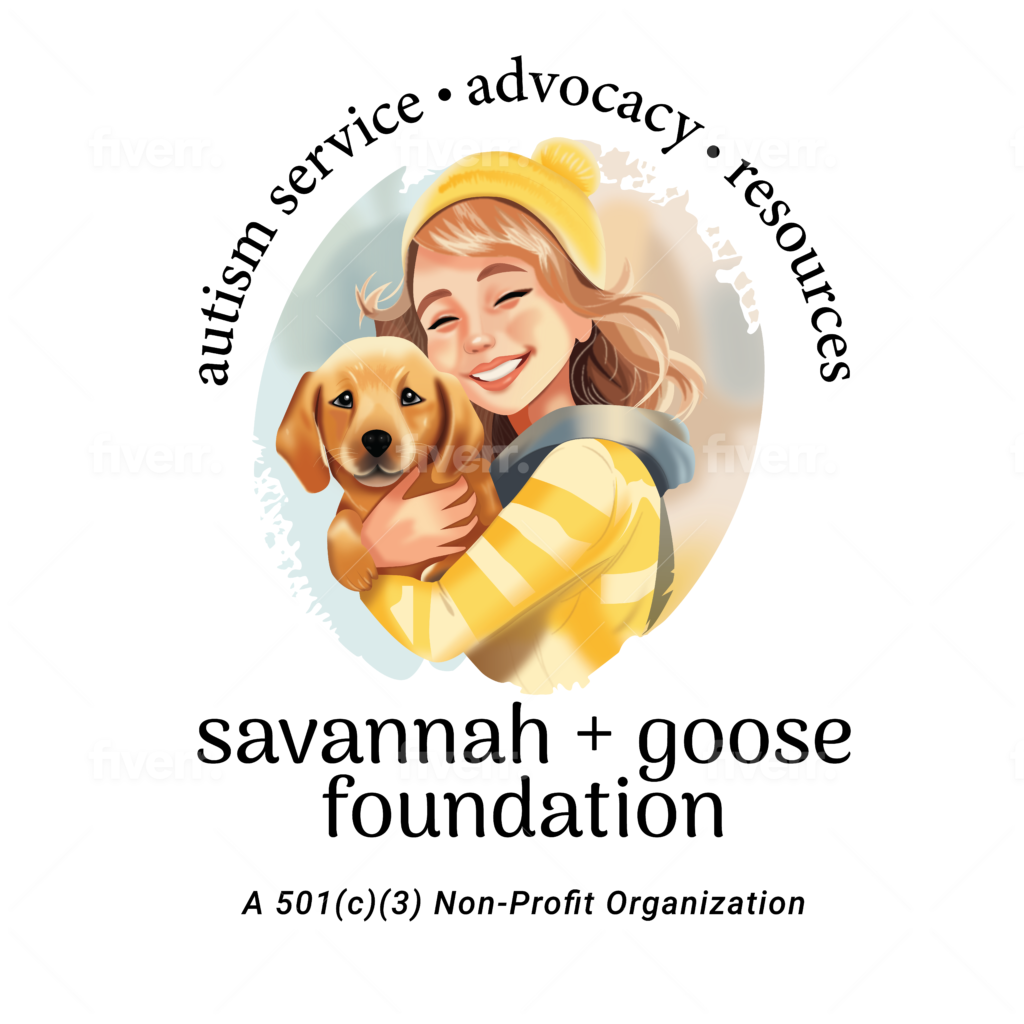
Many parents rely solely on their child’s Individualized Education Program (IEP) to address their child’s needs when autism is suspected. While an IEP is a valuable educational tool, it doesn’t replace the comprehensive benefits that come with a formal psychological evaluation and diagnosis. At the Savannah and Goose Foundation, we occasionally see applications from families without formal evaluations, which prompts an important conversation about why diagnosis matters.
A Personal Note from Our Team
We’d like to share something important about our application process. While the vast majority of our applicants have the proper documentation, occasionally we receive grant applications from families who only have an IEP but no formal medical diagnosis. In these rare cases, we’re unable to move forward with the application.
These situations truly weigh on our hearts. We understand when parents tell us, “But the school says my child has autism,” or “We’ve been working with the IEP team for years.” We know how hard you’ve worked to support your child.
Unfortunately, an IEP alone—while valuable for educational purposes—does not meet our grant requirements. This isn’t because we want to create hurdles or because we don’t believe you. It’s because:
-
Our funding partners and donors require this level of documentation
-
A medical diagnosis provides the specificity needed to properly evaluate equipment needs
-
We aim to maintain consistent standards for all applicants
We’re sharing this information proactively to help families understand our requirements before applying, hoping to prevent any disappointment or confusion in the application process.
Why Formal Diagnosis Is Essential
1. Accurate Understanding and Targeted Support
A formal diagnosis provides a detailed assessment of your child’s specific profile. Unlike an IEP, which focuses primarily on educational accommodations, a psychological evaluation examines:
-
Cognitive strengths and challenges
-
Social communication patterns
-
Sensory processing issues
-
Co-occurring conditions
-
Developmental history
This thorough understanding enables more precise, individualized interventions beyond the classroom setting.
2. Access to Specialized Services and Resources
Many support services, therapies, and programs specifically designed for autistic individuals require a formal diagnosis, including:
-
Applied Behavior Analysis (ABA) therapy
-
Speech and language therapy
-
Occupational therapy
-
Respite care
-
Social skills groups
-
Specialized summer camps
-
Financial assistance programs (including ours and many others)
Insurance coverage for these vital services often hinges on having a formal diagnosis from a qualified professional.
3. Lifelong Support Planning
An IEP typically ends when a child graduates from high school, but autism is a lifelong condition. A formal diagnosis:
-
Establishes eligibility for adult services and supports
-
Provides documentation for college accommodations
-
May qualify individuals for vocational rehabilitation services
-
Can be necessary for disability benefits and protected status
-
Helps with transition planning for adulthood
4. Family Understanding and Acceptance
Receiving a formal diagnosis often brings clarity and validation to families who have been searching for answers. It can:
-
Reduce self-blame and confusion
-
Help family members better understand their child’s needs
-
Connect parents with support groups and resources
-
Guide parenting approaches that work best for your child
-
Facilitate conversations with extended family members
Addressing Common Concerns
The Stigma Factor
Some parents hesitate to pursue evaluation due to concerns about labeling or stigma. However, consider that:
-
Without a proper diagnosis, misconceptions about your child’s behavior may actually increase stigma
-
A diagnosis provides a framework for understanding differences, not defining limitations
-
The autism community is increasingly embracing neurodiversity perspectives that celebrate different ways of thinking
-
Diagnosis opens doors to supportive communities and role models
The Reality of Evaluation Costs
Let’s be honest—obtaining a formal autism diagnosis can be expensive, with costs ranging from $1,500 to $5,000 or more, depending on the provider and depth of evaluation. We understand this presents a significant financial burden for many families.
While some insurance plans cover evaluations, the reality is that many don’t provide adequate coverage, leave families with substantial out-of-pocket costs, or have high deductibles that must be met first. Even when insurance does cover the evaluation, families often report spending months fighting for approval or reimbursement.
This financial barrier is precisely why organizations like Discover Autism exist—because the need for financial assistance for evaluations is very real and widespread.
Discover Autism: Supporting Maryland Families During Critical Early Years
For Maryland families facing financial barriers to obtaining a formal autism diagnosis, we’re proud to highlight our friends at Discover Autism (https://discoverautismcharity.org/).
Discover Autism works their magic specifically during the crucial early intervention years—that critical window before kindergarten when children can benefit most from intensive therapies and supports. Their focus is strategic: getting children diagnosed early so they can access vital services before school-based services kick in around kindergarten age.
This timing is absolutely critical. Research consistently shows that early intervention leads to significantly better outcomes for autistic children. By securing a diagnosis during these formative years, families can access specialized therapies when their child’s brain is most responsive to intervention.
At the Savannah and Goose Foundation, we’re acutely aware of the frustratingly long waitlists for autism evaluations. Many families in Maryland face waiting periods of 6-12 months or even longer to get an appointment with a qualified diagnostician. These delays can mean precious time lost for early intervention and access to support services.
This is where Discover Autism makes a tremendous difference. Not only do they provide financial assistance for evaluations, but they also help families fast-track the evaluation process through their network of trusted providers. Their established relationships with diagnosticians often mean significantly reduced wait times, getting your child the evaluation they need in weeks rather than months—often making the difference between receiving early intervention services or missing that crucial window.
Discover Autism is a Maryland-based nonprofit organization specifically focused on helping families access diagnostic evaluations. Their mission is to remove financial obstacles that prevent children from receiving proper autism diagnoses and the subsequent support they need.
Their services include:
-
Financial assistance specifically for diagnostic evaluations
-
Guidance through the evaluation process
-
Connections to qualified healthcare providers in Maryland with reduced wait times
-
Support for families navigating next steps after diagnosis
-
Strategic focus on pre-kindergarten years when early intervention is most effective
Discover Autism understands that early diagnosis is critical, and they work tirelessly to ensure that no Maryland child goes without proper evaluation due to financial constraints or lengthy waitlists. Their targeted focus on funding evaluations complements our mission at Savannah and Goose Foundation, creating a more complete support system for families throughout their autism journey.
If you’re a Maryland family seeking diagnostic services, we strongly encourage you to reach out to Discover Autism before beginning the evaluation process to learn about their application requirements and available assistance.
How Diagnosis Benefits Your Child Directly
Perhaps most importantly, a formal diagnosis benefits your child by:
-
Validating their experiences and challenges
-
Providing self-understanding as they grow older
-
Giving them access to appropriate accommodations throughout life
-
Connecting them with others who share similar experiences
-
Ensuring they receive the specific supports needed to thrive
Moving Forward
If you’re considering applying to the Savannah and Goose Foundation but only have an IEP, we encourage you to:
-
Reach out to Discover Autism (https://discoverautismcharity.org/) for potential evaluation funding
-
Once you have a formal diagnosis, apply to our program—we would love to consider your application
-
Contact us with questions about the documentation needed; we’re here to help navigate this process
At the Savannah and Goose Foundation, we understand that pursuing a diagnosis can feel overwhelming. While we don’t provide funding for evaluations, we strongly encourage families to seek this important step, not just for our grant program, but for all the additional benefits a diagnosis provides.
Remember that knowledge is power. A diagnosis doesn’t change who your child is—it simply provides the understanding and access needed to support them fully throughout their life journey.
We’re here to support you through this process and connect you with resources that can help make evaluation more accessible for your family.

